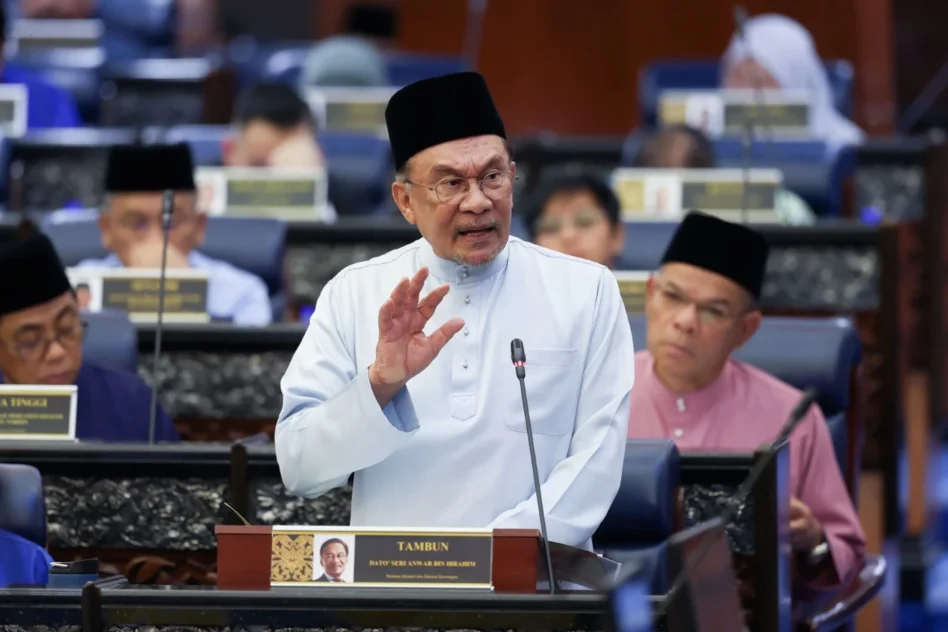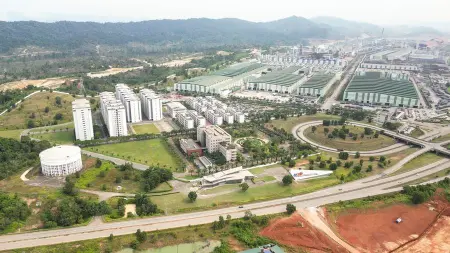
The Budget 2026 recently tabled and presented by Prime Minister and Finance Minister Dato’ Seri Anwar Ibrahim, marks a pivotal step in the nation’s structural economic transformation under the Ekonomi MADANI agenda.
The Government has allocated RM419.2 billion for 2026, with a clear focus on regional growth, social welfare, and sustainable development. The theme, “People’s Budget,” underscores the administration’s ongoing commitment to easing cost-of-living pressures while strengthening Malaysia’s economic resilience.
Government Dedication in Ensuring Housing Affordability & Ownership
In line with the Government’s continued commitment to ease the rakyat’s cost-of-living pressures, the Budget 2026 Malaysia introduces several measures to promote housing accessibility for the lower and middle-income groups.
Among the key highlights of are:
- Full stamp duty exemption for first-time homebuyers purchasing properties up to RM500,000, extended until 31 December 2027.
- Expansion of the Housing Credit Guarantee Scheme (SJKP) to RM20 billion, benefiting an estimated 80,000 future homeowners, including gig workers and self-employed individuals.
- Extension of the Youth Housing Financing Scheme (LPPSA) until 2026, with an increased financing limit of up to RM1 million, assisting approximately 48,000 young civil servants in purchasing or upgrading their homes.
While such moves are applauded by many, concerns over the property market’s performance under Budget 2026 Malaysia have surfaced. Calls for more targeted incentives seeking government support to stimulate the private sector demand with the likes of reinstatement of the Home Ownership Campaign (HOC), a proven initiative that previously boosted real estate activity and helped reduce unsold housing stock before new supply enters the market.
Foreign Buyer Policy & Its Implications

Under Budget 2026 Malaysia , the Government’s decision to increase stamp duty for foreign buyers from 4% to 8% expected to draw mixed reactions from the industry.
While the Budget 2026 policy aligns with the MADANI principle, it could dampen foreign investment sentiment in the high-end residential market, particularly in Kuala Lumpur, Johor Bahru, and Penang. Developers catering to premium foreign investors are expected to reassess pricing strategies and timelines to mitigate the potential slowdown in sales performance.
Industrial Modernisation Program

In addition, the Budget 2026 Malaysia introduces measures to support green and high-tech industrial growth, the industrial sector looks forward to Malaysia’s drive toward industrial modernisation and sustainability, which could reshape real estate investment trends in the coming years.
Key allocations include:
- RM180 million under the New Industrial Master Plan (NIMP) Industrial Fund; and
- RM5.9 billion under the Research, Development, Commercialisation, and Innovation (RDCI) programme.
Overall, the Budget 2026 emphasises sustainable industrial development, encouraging green innovation while strengthening investor confidence in long-term property resilience.
The introduction of a carbon tax in 2026 is also set to encourage greener, energy-efficient developments. However, it may raise operational and compliance costs for industrial property owners, potentially impacting rental yields and sales performance in the short term.
Overall Outlook Post on Budget 2026 Malaysia
The direction set by Budget 2026 Malaysia continues to influence housing and industrial policy nationwide as it offers a balanced and pragmatic direction for Malaysia’s property industry, prioritising affordability, inclusivity, and sustainability over short-term stimulus.
While the absence of broad-based incentives such as the HOC may limit immediate momentum, the focus on housing accessibility, industrial transformation, and green compliance under the Budget 2026 Malaysia signals a clear policy shift toward long-term market stability and competitiveness.
Developers, investors, and financial institutions are encouraged to align with this direction by prioritising affordable housing, adaptive reuse of existing assets, and environmentally sustainable developments in their future strategies.
Key Measures with the Budget 2026 Malaysia
Developers, investors, and financial institutions are encouraged to align with this direction under Budget 2026 Malaysia, prioritising affordable housing, adaptive reuse of existing assets, and environmentally sustainable developments in their future strategies.
| No. | Policy Announced | Description | Objective | Impact |
| 1 | Stamp Duty Exemption for First-Time Homebuyers | Full stamp duty exemption on both the instrument of transfer and loan agreements for residential property priced up to RM 500,000, extended until 31 December 2027. | Reduce upfront transaction costs to help first-time buyers. | · Supports affordability in the mid to lower-price tier housing segment. |
| 2 | Increase in Stamp Duty for Foreign Buyer | Stamp duty on residential property purchases by non-citizens, non-permanent residents, and foreign companies increased from 4 % to 8 %. | To curb speculative demand from foreign buyers and prioritise local home ownership. | · Limited direct impact for non-urban localities. · Potentially dampen high-end residential sales, particularly in key urban markets such as Kuala Lumpur, Johor Bahru, Penang. |
| 3 | Tax Deduction for Commercial-to-Residential Conversions | Special 10% tax deduction (capped at RM 10 million) for qualifying expenses on renovation and conversion of commercial buildings into residential usage. | Encourage adaptive reuse of underutilised commercial or “dead” property (office, shop-lots) to help ease housing supply constraints in urban centres. | · Potential niche projects of repurposing (i.e. converting low-occupancy offices / shops). · Effectiveness depends on regulatory, planning, and financing support. |
| 4 | Expansion of Housing Credit Guarantee Scheme (SJKP) | Allocation increased to RM 20 billion capacity, assisting about 80,000 first-time homebuyers including gig-workers and self-employed individuals. | Improve access to housing loans for individuals without fixed income documentation, supporting financial inclusion. | · Expands homeownership among non-traditional earners. · Expected to stimulate affordable housing demand, especially in suburban markets. |
| 5 | Extension of Youth Housing Financing Scheme (LPPSA) | Scheme extended until 2026, with financing limit raised to RM1 million, targeting 48,000 young civil servants. | Support young professionals in purchasing or upgrading homes. | · Strengthens demand from younger demographics and mid-income buyers. · Improves housing mobility within the public sector. |
| 6 | Call to Support for Rent-to-Own / Build-then-Sell | The Budget 2026 Malaysia calls for encouraging financial institutions to support rent-to-own housing schemes and “build-then-sell” mechanisms. | Expand access to homeownership for middle-income groups. | · Positive move but much depends on how private lender’s structure products, interest rates, and the enforceability of contracts. · Requires consideration on strong regulatory framework, risks of default, and disputes. |
| 7 | Industrial and Green Development Incentives | i. RM180 million allocated under the New Industrial Master Plan (NIMP) Industrial Fund and ii. RM5.9 billion under the Research, Development, Commercialisation, and Innovation (RDCI) programme. iii. Introduction of a carbon tax in 2026. | Drive industrial modernisation, sustainability, and green transition. | · Stimulates demand for modern industrial real estate (tech parks, logistics hubs, data centres). · May raise compliance costs but accelerates green transformation. |


